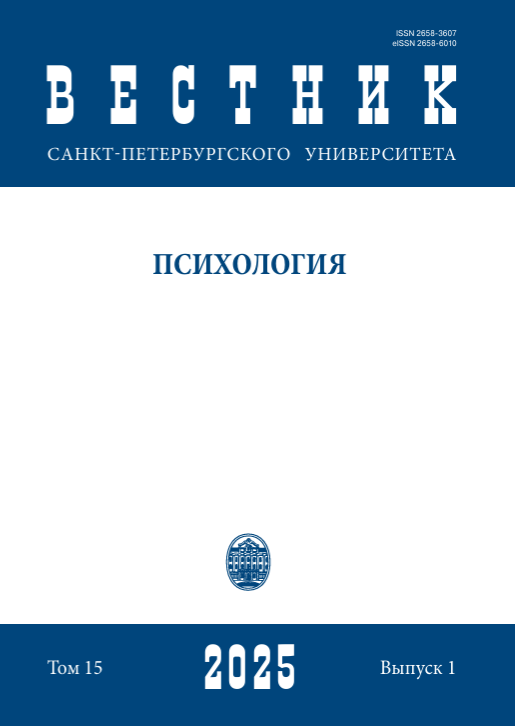On the splitting effect of cognitive style poles: Twenty years later
DOI:
https://doi.org/10.21638/spbu16.2025.102Abstract
Studies in the field of cognitive styles encounter a number of contradictions. In our view, the reason lies in the psychological ambiguity of cognitive styles’ indicators. We developed a quadripolar model of cognitive styles, according to which the poles of each cognitive styles are split into two sub-poles, reflecting radically different mechanisms of mental activity. Thus, cognitive styles is not a bipolar but a quadripolar dimension. According to this model, each style pole comprises two latent subgroups that can be distinguished based on the ratio of style indicators — the primary and the supplementary. One of these subgroups is productive, while the other is unproductive. Consequently, within a single cognitive style, four subgroups are theoretically expected to exist (two productive and two unproductive). The goal of this article is to analyze the results of studies on the splitting effect of primary cognitive style poles over the past 20 years to assess the prospects of the quadripolar model. Research over the last two decades confirms the existence of a splitting effect for the poles of all major cognitive styles (impulsivity/reflectivity, field dependence / independence, narrow/broad categorization, rigidity/flexibility of control, cognitive simplicity/complexity, concrete/abstract conceptualization). This effect manifests in significant differences among representatives of style subgroups in intellectual and personal domains, as well as in age, educational, and clinical contexts. Thus, firstly, we can talk about the psychological heterogeneity of the poles of CS, since different mechanisms of mental activity (accordingly contemporary style studies need to account for sample heterogeneity and limitations in using linear data processing methods). Secondly, both productive and unproductive subgroups are represented at each style pole, the presence and the ratio of which is determined by individual differences in the ability to involuntarily control of information processing.
Keywords:
cognitive styles, splitting effect, style subgroups, metacognitive abilities, involuntarily control
Downloads
References
References
A. N. Zhuravlev, V. A. Kol’czova (eds) (pp. 1129–1136). Institut psikhologii RAN Press. (In Russian)
Downloads
Published
How to Cite
Issue
Section
License
Articles of "Vestnik of Saint Petersburg University. Psychology" are open access distributed under the terms of the License Agreement with Saint Petersburg State University, which permits to the authors unrestricted distribution and self-archiving free of charge.




